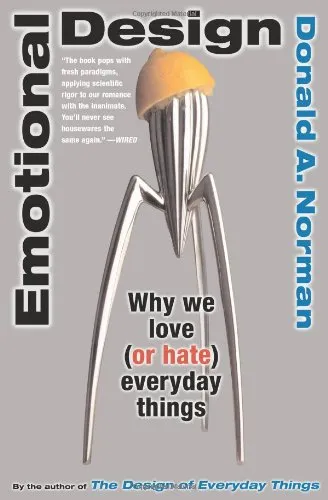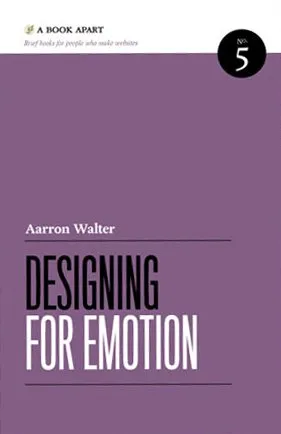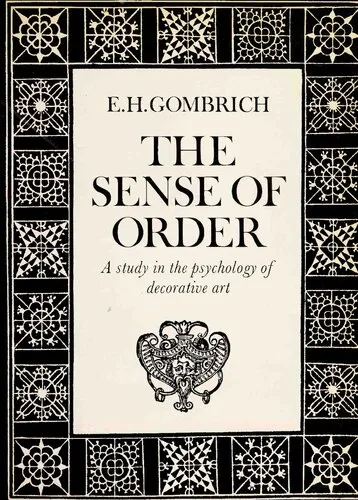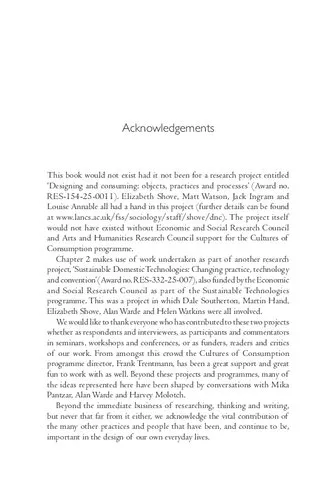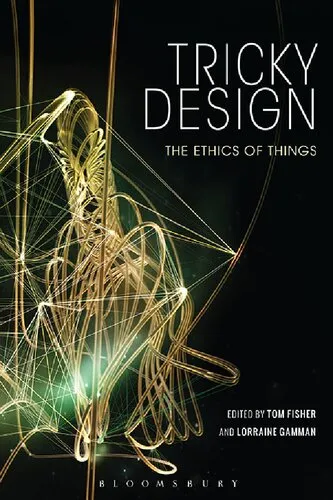The Design of Everyday Life (Cultures of Consumption)
4.0
Reviews from our users

You Can Ask your questions from this book's AI after Login
Each download or ask from book AI costs 2 points. To earn more free points, please visit the Points Guide Page and complete some valuable actions.Related Refrences:
Introduction to "The Design of Everyday Life (Cultures of Consumption)"
Authored by Elizabeth Shove, Matthew Watson, Jack Ingram, and Martin Hand, "The Design of Everyday Life" delves into the intricate relationship between design, everyday practices, and consumption. As part of the "Cultures of Consumption" series, this groundbreaking book provides a critical analysis of how the material world shapes human routines and societal behaviors. It challenges traditional accounts of design and consumption by placing focus on the dynamic interactions between objects, habits, and cultural norms.
The book provides a refreshing exploration of the mundane yet vital elements of daily life, reframing how we think about the objects and practices that constitute modern living. With a lens sharpened by multi-disciplinary perspectives, the authors argue that design not only responds to consumer demand but also actively participates in shaping patterns of behavior, habits, and cultural practices.
This work is especially valuable in its merging of sociology, design theory, and consumption studies. By shifting the focus towards how people interact with designed objects, the book invites readers to rethink the often-overlooked but profound influence of design on everyday life.
Detailed Summary of the Book
"The Design of Everyday Life" is a deep exploration of how objects and practices co-evolve to shape consumption patterns and societal norms.
The book begins by challenging conventional notions of consumption, which often revolve around individual decision-making and economic choices. Instead, it proposes a practice-oriented perspective that views consumption as an outcome of social practices—routines, habits, and patterns of behavior that are deeply embedded within cultural and material arrangements.
Shove and her co-authors articulate how objects (such as household appliances, tools, and other artifacts) are not merely passive entities but integral to shaping and sustaining these practices. Through case studies and detailed analysis, the authors demonstrate how seemingly mundane objects, such as refrigerators or vacuum cleaners, anchor specific routines that dictate how people live their lives.
The book also moves beyond the present to consider the historical context of evolving designs and practices, such as the shift from traditional hand-washing to modern laundry practices mediated by washing machines. By doing so, it emphasizes that design is not just about utility or aesthetics—it is a critical component of societal transformation.
Key Takeaways
- Design is not merely about creating objects but fundamentally about shaping routines, behaviors, and social practices.
- Consumption is better understood as a byproduct of these practices rather than individual consumer choice.
- Everyday objects and technologies hold transformative power in influencing the cultural and material fabric of society.
- To understand social change, one must analyze how interdependent elements of practices—materials, competencies, and meanings—evolve over time.
- Reconceptualizing design as a medium for social and cultural change opens up possibilities for sustainable living.
Famous Quotes from the Book
"Design is more than just the means to produce objects; it is a medium through which everyday life is defined and redefined."
"Consumption is not merely about acquisition but the reproduction of shared practices, values, and meanings."
"The story of consumption is incomplete without understanding the material arrangements and cultural expectations that sustain it."
Why This Book Matters
"The Design of Everyday Life" is a landmark contribution to the fields of sociology, design, and cultural studies. It matters because it redefines how we understand the role of design in shaping societal behavior and consumption patterns.
The book is essential for anyone studying or working in design, product development, urban planning, or sustainability. By shifting the perspective from individual consumption choices to broader social practices, it offers a new framework to address critical global challenges such as overconsumption and environmental degradation.
Furthermore, the book inspires designers and policymakers to think beyond the functional and aesthetic features of objects and consider their role in broader cultural and social contexts. It instills a sense of responsibility and transformative potential for design as a driver of cultural and environmental change.
"The Design of Everyday Life" matters because it equips readers with the intellectual tools to critically examine the interconnectedness of design, consumption, and societal well-being, propelling meaningful dialogue about the sustainable futures we need to create.
Free Direct Download
You Can Download this book after Login
Accessing books through legal platforms and public libraries not only supports the rights of authors and publishers but also contributes to the sustainability of reading culture. Before downloading, please take a moment to consider these options.
Find this book on other platforms:
WorldCat helps you find books in libraries worldwide.
See ratings, reviews, and discussions on Goodreads.
Find and buy rare or used books on AbeBooks.
1345
بازدید4.0
امتیاز0
نظر98%
رضایتReviews:
4.0
Based on 0 users review
Questions & Answers
Ask questions about this book or help others by answering
No questions yet. Be the first to ask!

